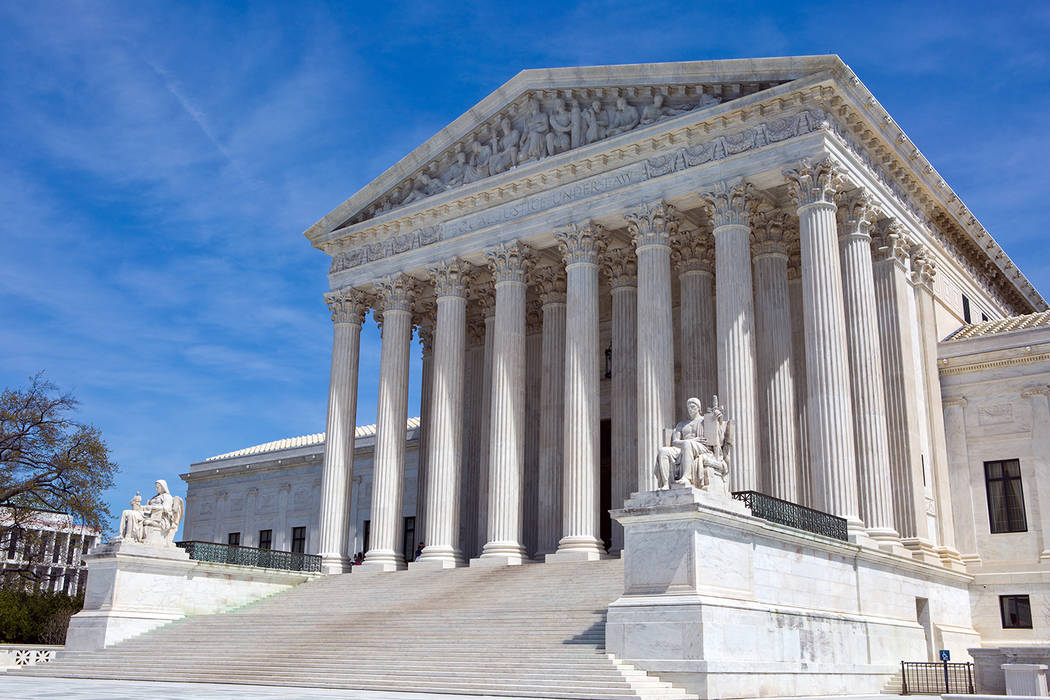Thomas Knapp: A proposal — cut the Supreme Court’s size
Well, here we go again.
On June 27, U.S. Supreme Court Associate Justice Anthony Kennedy announced his retirement, effective July 31.
Cue crisis, as defined by President John F. Kennedy’s inaccurate characterization of the Chinese analog: “Two characters, one representing danger and the other, opportunity.” Democrats and Republicans have, for 30 years, alternated between anticipation and fear, depending on which party was in position to choose Kennedy’s successor.
As a “swing vote” — reliably tied to neither party’s policy agenda — since the day he donned the robe in 1988, there’s never been a convenient time for Kennedy to retire, a time when his retirement wouldn’t have constituted a nuclear bomb dropped smack in the middle of America’s political debate.
That effect is magnified by U.S. Senate Majority Leader Mitch McConnell’s 2016 decision to hold off on confirming President Barack Obama’s appointment of Merrick Garland to replace the late Antonin Scalia because there was an election coming soon and he wanted to wait for a new president to choose someone else.
Well, there’s an election coming soon, and suddenly the roles are reversed. Mitch and the Republicans are in a hurry and Democrats are inclined (especially if they can get a little bit of “moderate Republican” help) to drag their feet.
I have a better idea: Cut the court.
President Donald Trump should announce that he is holding off on appointing a successor for Kennedy and asking Congress to reduce the size of the court to seven justices, effective with the NEXT retirement. If Congress complies, that next retirement will likely be Ruth Bader Ginsburg, who is 85 and holding on for dear life rather than allow her successor to be chosen by a Republican president.
The size of the Supreme Court is entirely up to Congress. The Constitution prescribes no specific number of justices, and Congress has set the number as low as five (in 1801) and as high as 10 (in 1863).
Cutting the court to seven would be a win for Republicans. Shedding Kennedy and Ginsburg would reduce the court’s “left” wing by one-and-a-half justices and its “right” wing by only one-half (Kennedy being half fish, half fowl, so to speak), without a bruising confirmation battle right before an election.
Cutting the court to seven would also be a win for Democrats in that they would avoid the risk ofTrump appointing not only Kennedy’s successor but Ginsburg’s as well (should her health take a turn for the worse or should Trump be re-elected in 2020).
And cutting the court to seven would give the American public a respite, however brief and partial, from the constant political propaganda about how our voting choices might affect the court’s future composition. We have other issues to attend to. Cut the court.
Thomas L. Knapp (Twitter: @thomaslknapp) is director and senior news analyst at the William Lloyd Garrison Center for Libertarian Advocacy Journalism (thegarrisoncenter.org). He lives and works in north-central Florida.





















